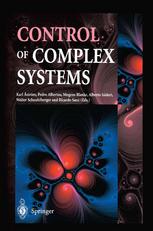

Most ebook files are in PDF format, so you can easily read them using various software such as Foxit Reader or directly on the Google Chrome browser.
Some ebook files are released by publishers in other formats such as .awz, .mobi, .epub, .fb2, etc. You may need to install specific software to read these formats on mobile/PC, such as Calibre.
Please read the tutorial at this link: https://ebookbell.com/faq
We offer FREE conversion to the popular formats you request; however, this may take some time. Therefore, right after payment, please email us, and we will try to provide the service as quickly as possible.
For some exceptional file formats or broken links (if any), please refrain from opening any disputes. Instead, email us first, and we will try to assist within a maximum of 6 hours.
EbookBell Team

0.0
0 reviewsThe world of artificial systems is reaching complexity levels that es cape human understanding. Surface traffic, electricity distribution, air planes, mobile communications, etc. , are examples that demonstrate that we are running into problems that are beyond classical scientific or engi neering knowledge. There is an ongoing world-wide effort to understand these systems and develop models that can capture its behavior. The reason for this work is clear, if our lack of understanding deepens, we will lose our capability to control these systems and make they behave as we want. Researchers from many different fields are trying to understand and develop theories for complex man-made systems. This book presents re search from the perspective of control and systems theory. The book has grown out of activities in the research program Control of Complex Systems (COSY). The program has been sponsored by the Eu ropean Science Foundation (ESF) which for 25 years has been one of the leading players in stimulating scientific research. ESF is a European asso ciation of more than 60 leading national science agencies spanning more than 20 countries. ESF covers has standing committees in Medical Sci ences, Life and Environmental Sciences, Physical and Engineering Sci ences, Humanities and Social Sciences. The COSY program was ESF's first activity in the Engineering Sciences. The program run for a period of five years starting January 1995.